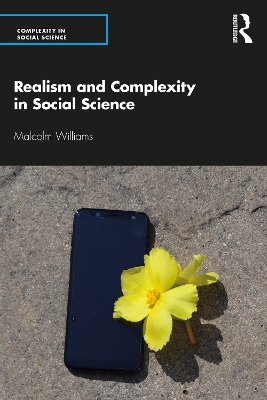Complexity in Social Science
1 total work
Realism and Complexity in Social Science is an argument for a new approach to investigating the social world, that of complex realism. Complex realism brings together a number of strands of thought, in scientific realism, complexity science, probability theory and social research methodology.
It proposes that the reality of the social world is that it is probabilistic, yet there exists enough invariance to make the discovery and explanation of social objects and causal mechanisms possible. This forms the basis for the development of a complex realist foundation for social research, that utilises a number of new and novel approaches to investigation, alongside the more traditional corpus of quantitative and qualitative methods. Research examples are drawn from research in sociology, epidemiology, criminology, social policy and human geography.
The book assumes no prior knowledge of realism, probability or complexity and in the early chapters, the reader is introduced to these concepts and the arguments against them. Although the book is grounded in philosophical reasoning, this is in a direct and accessible style that will appeal both to social researchers with a methodological interest and philosophers with an interest in social investigation.
